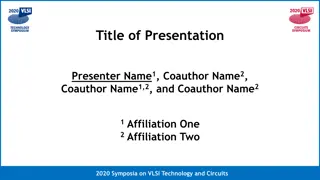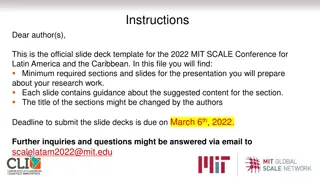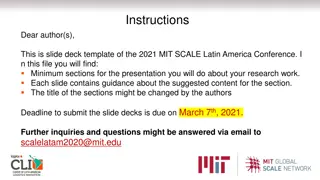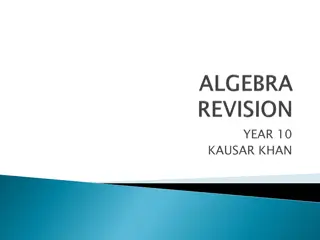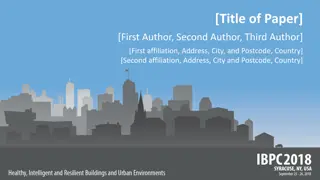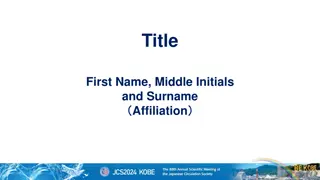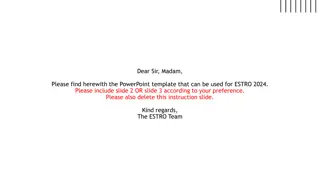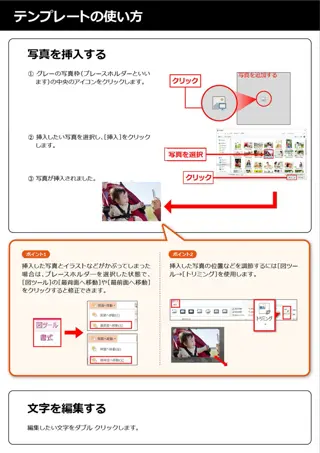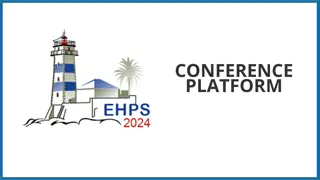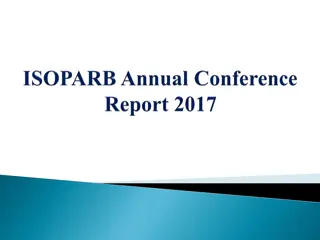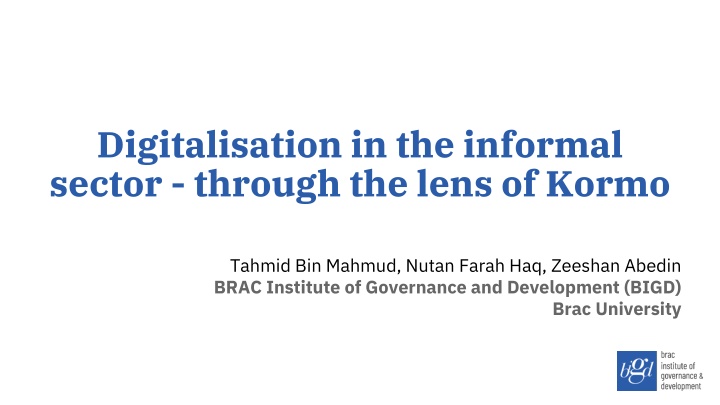
Digitalisation in the Informal Sector: Insights from Kormo and BRAC University
Explore the impact of digitalisation in the informal sector through the research findings of Kormo Tahmid Bin Mahmud, Nutan Farah Haq, and Zeeshan Abedin from BRAC University. Discover how formal and informal employment differ, the benefits of digitalisation, and the success and challenges faced. Learn about Kormo, an online job-matching platform for day laborers, and how it is transforming opportunities in the informal sector.
Download Presentation

Please find below an Image/Link to download the presentation.
The content on the website is provided AS IS for your information and personal use only. It may not be sold, licensed, or shared on other websites without obtaining consent from the author. If you encounter any issues during the download, it is possible that the publisher has removed the file from their server.
You are allowed to download the files provided on this website for personal or commercial use, subject to the condition that they are used lawfully. All files are the property of their respective owners.
The content on the website is provided AS IS for your information and personal use only. It may not be sold, licensed, or shared on other websites without obtaining consent from the author.
E N D
Presentation Transcript
Digitalisation in the informal sector - through the lens of Kormo Tahmid Bin Mahmud, Nutan Farah Haq, Zeeshan Abedin BRAC Institute of Governance and Development (BIGD) Brac University
Formal and Informal Employment Formal employment Consists of a contractual arrangement between an organization and an individual - fixed salary, working hours, paid leaves, benefits etc. Example: A Research Associate Informal employment Any work that does not consist of any formally regulated structures, hence excluding from any social safety nets or benefits. Example: A day labourer
Digitalisation in the Informal Sector As Gartner defines it, digitalisation is the use of digital technologies to change a business model and provide new revenue and value-producing opportunities; it is the process of moving to a digital business . Formalising the informal sector has been at the heart of many poverty reduction programmes. The uptake of digital technology has enabled a large number of informal businesses to access formal opportunities.
Digitalisation in the Informal Sector (cont.) Merits behinds digitalisation Increased Access to Information Standard base pay Digital Profile Proof of work experience Mobile money and savings
Kormo; an online job-matching platform for day- labourers Ideation by Bickey Russell, former Director of Global Operations at Google Piloted in Bangladesh at the end of 2016 via Google s Area 120 program - an accelerator program inside Google for its employees to encourage entrepreneurship , funding their innovative ideas. Launched in collaboration with BRAC Skills Development Programme (SDP)
Successes and Challenges Ease of job searching Higher pay for better service Digital job profile
Successes and Challenges (cont.) Failure in full automation Demand side issues Technophobia
Lessons for future work Tech-enabled agency instead of full automation Assessing Digital Literacy








